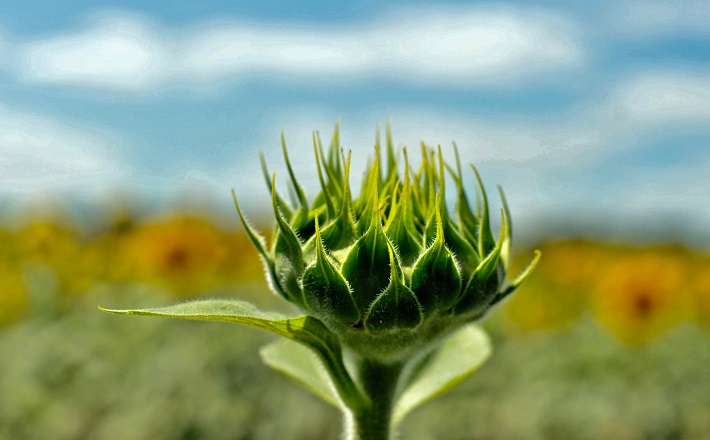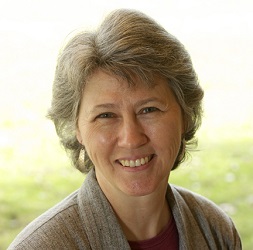Commentary on Matthew 13:1-9, 18-23
As every gardener knows, it’s all about the soil. Without good soil, worked with compost, seeds cannot flourish.
So it is, also, in the parable of the sower.
- The seed that lands where the soil has become hardened from being repeatedly walked on simply sits on the surface, waiting to become food for the birds.
- The seed that falls on rocky soil has difficulty taking root because the soil inhibits the growth of roots, necessary for plants to access the nutrients in the soil.
- The seed that falls on ground covered in thorns must compete with already well-established, invasive plants and stands little chance.
- But the seed that falls on the soil that has been prepared, turned over and loosened until it is fine, replenished with nutrients from the decaying matter of leaves, thrives.
So, while the parable of the sower appears to be about the seed, I suggest (because I am a gardener) that it is really about the soil. This means that the parable is really about us—those who hear the “word of the kingdom” (or “kindom” for those who seek less kyriarchal language). We are the soil.
Soil, like human beings, is shaped by its environment. So, if soil is walked on over and over again, beaten down so that it becomes packed hard, it is no longer fit for the planting of seeds. We see this in the human community too. People who have been walked on over, and over, and over again often develop a hardened exterior to protect themselves. Rocky soil, says Jesus, describes those who lack the staying power to deal with—well, rocky ground. When the going gets rough, they go into retreat. The soil filled with thorns easily translates into our overcrowded lives; there is no room in an already overplanted plot for anything more, even with double-digging the beds.
And the good soil? It would be nice if it were as simple as buying a bag of ‘good soil’ at the gardening center. A gardener will tell you, however, that good soil takes years to cultivate. It must be fed, nurtured by the remains of plants that have come and gone. It must be worked and reworked so that it becomes supple, but not worked so hard that its structure is broken down. And it must be replenished, as seeds grow and draw on its nutrients. Good soil can develop in nature, as years of leaves fall and dissolve into the earth. Good soil can also be the work of gardeners, who tend the soil as carefully as they tend the plants.
The parable, of course, doesn’t say anything about gardeners—only sowers. Scattering seed was (and in some places still is) a relatively efficient way to plant a large field of grain. In the Hebrew Scriptures, God is depicted as one who sows (Jeremiah 31:27-28; Hosea 2:21-23). In Matthew, it is Jesus who sows the “word of the kin(g)dom” and it is the disciples, too, who will become sowers of the word.
The lectionary leaves out the verses that link the parable (13:1-9) to its explanation (3:18-23), in part (no doubt) because it makes for a very long reading, but I suspect also because verses 10-17 make it a much more complicated story. In these verses, the disciples ask Jesus why he speaks to the crowds in parables and he replies, in effect, that those who are confused or confounded by the word of the kin(g)dom will never understand. This harsh response, it has been suggested, is intended to explain why the word, spread so freely and widely, hasn’t attracted a large following.
Why this might be the case becomes clearer when we examine to what the “word of the kin(g)dom” refers. Although the phrase occurs only once in the Gospel of Matthew (13:19), it may be understood as a parallel to the phrase the “good news of the kin(g)dom” (Matthew 4:23; 9:35). Notably, it is the only Gospel that speaks of a “kin(g)dom of heaven.”
This spatial reference sets up a contrast between the “kin(g)dom of heaven” and the kin(g)doms of the world; in the ancient world, the Roman Empire in particular. Those who belong to the kin(g)dom of heaven are likely to find themselves in tension with the kingdoms of the world. While the reference to heaven clearly establishes this kin(g)dom as the realm of God, it is described in the Gospel not so much as a place as a state of being expressed by loyalty to and trust in God, and in God’s child, Jesus, through whom the kin(g)dom of heaven draws near (Matt 3:2; 4:17).
The kin(g)dom of heaven, says Matthew, belongs to the poor in spirit and the persecuted (Matthew 5:3,10), it is governed by humility (18:3; 19:140) and demonstrated in righteousness (5:10, 19-20; 6:33), which is to do the will of God (7:21). As we ponder the parable of the sower, this invites us to reflect on a number of questions:
- What does it mean to be good soil, prepared to receive the word of the kingdom?
- How do we assess what kind of shape our soil is in?
- What would we need to do for the seed to be able to take root in our bodies and souls?
- How will we know if this is happening?
- And how might we nurture good soil in those around us?
While we set about cultivating good soil, we are not without hope. It is true that seeds landing on hard or rocky ground stand less of a chance of gaining root and thriving but it does, sometimes, happen. There are remarkable pictures of trees growing out of rocks and flowers that push up through the pavement. These tenacious plants offer signs that the word of the kin(g)dom will continue to find a way to grow even on the days when we feel beaten down, or overcome by thorns, or at our rockiest.


July 12, 2020